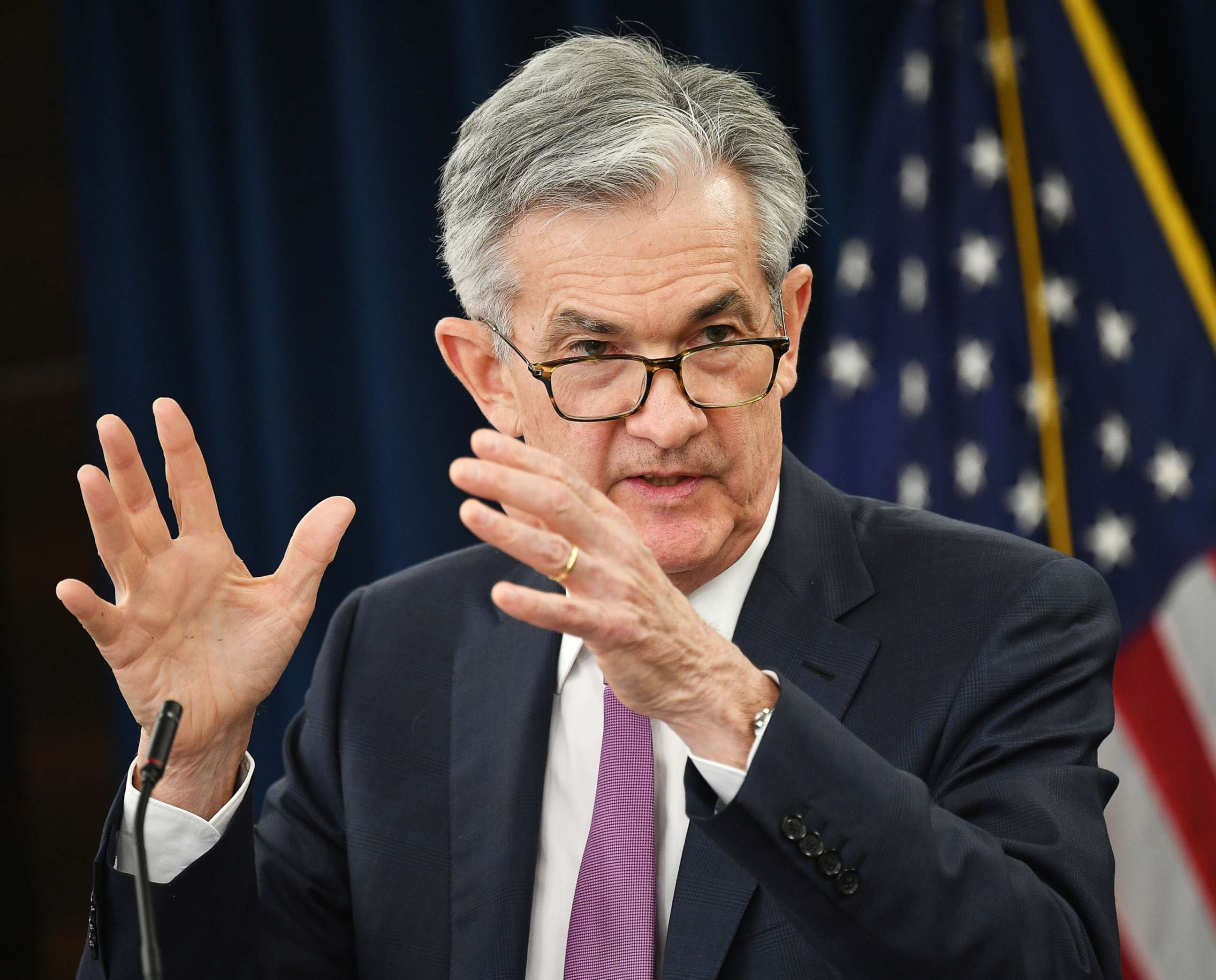Fed cuts interest rates: What does it mean for you?
Short answer: Not a big deal.
The Federal Reserve on Wednesday cut its benchmark interest rate by a quarter percentage point, the first cut since the 2008 financial crisis. The new short-term range will be between 2% and 2.25%.
In announcing the move, the Federal Open Market Committee (FOMC) cited “implications of global developments for the economic outlook as well as muted inflation pressures.”

President Donald Trump has often used the Fed and it's chairman, Jerome Powell, as a boogeyman when bearish economic news hits. On Tuesday, he tweeted, "Powell let us down."
Although Tuesday's cut was built into the market, forecasters were looking for cues to how many rate cuts there would be this year. Powell walked back expectations of further cuts, calling Tuesday's move a "midcycle adjustment.”
Trump and senior economic adviser Larry Kudlow have consistently said they wanted the Fed to cut rates. The Fed has been slowly raising rates over the past few years after the financial crisis. Last year, the Fed hiked rates four times.
Fed watchers dismissed the idea that Powell was caving to political pressure.
"It's not political," Tim Duy, an economics professor at the University of Oregon, told ABC News.
"In May and June they [the Fed] got scared on potential fallout from the trade stuff, and talked themselves into a corner," Michael Feroli, chief U.S. economist at JPMorgan, told ABC News, referring to an escalation in tensions in the ongoing trade negotiations between the U.S. and China. "Now if they didn't deliver [Tuesday], it would tough."
“What I said was it's not the beginning of a long series of rate cuts," Powell said. "We'll be taking a somewhat more accommodative stance over time."
The stock markets fell slightly on the news. The Dow Jones Industrial Average fell on Wednesday 1.2% to 26,864.27, while the S&P 500 traded 1% lower at 2,980.38.
For most Americans, the rate cut isn't going to make a big impact.
"It'll be a small cut, it's anticipated, so it's already factored into longer-term interest rates like mortgage rates and auto loans," JP Morgan's Feroli said. "The change is already reflected. There may be a small change in things like a money market fund or CD deposits."
Mortgage rates are already pretty low, Feroli said, noting that a 30-year fixed rate mortgage was at 5.17% in November 2018, and last week it was 4.08%.
"The impact on fixed mortgage rates will be debatable," said Tendayi Kapfidze, LendingTree’s chief economist. "There is often a misconception that changes in the federal funds rate affect mortgage rates, this is not the case. Mortgage rates have already been declining since November and a Fed funds cut will likely have no impact."
However, there may be some movement in variable-rate products like adjustable-rate mortgages, or ARMs, and home-equity lines of credit, which are based on short-term rates.
It's also good news for holders of credit card debt.
"Credit card interest rates track the bank prime rate, defined as 3% above the Fed funds target rate," Kapfidze said. "Many credit card contracts do automatically adjust rates downwards, and some lenders may elect to keep rates unchanged to increase profits. Cardholders should call and ask for lower rates."
Car loans also won't likely be impacted.
"Interest rates have been squeezing car shopper wallets all year, so a Fed rate cut is certainly a move in a more favorable direction," Jeremy Acevedo, senior manager of insights at auto research firm Edmunds, told ABC News. "However, this is a pretty modest cut, and the reality is that shoppers returning to the market for the first time after a few years are still going to be spending thousands more to finance their new car purchases thanks to rising vehicle costs and elevated interest rates."
"We don't expect to see more rate cuts moving forward," Acevedo added, "so shoppers can't count on this to open the floodgates for the zero percent finance deals that we saw a few years ago."
ABC News' Matthew Vann contributed to this report.




